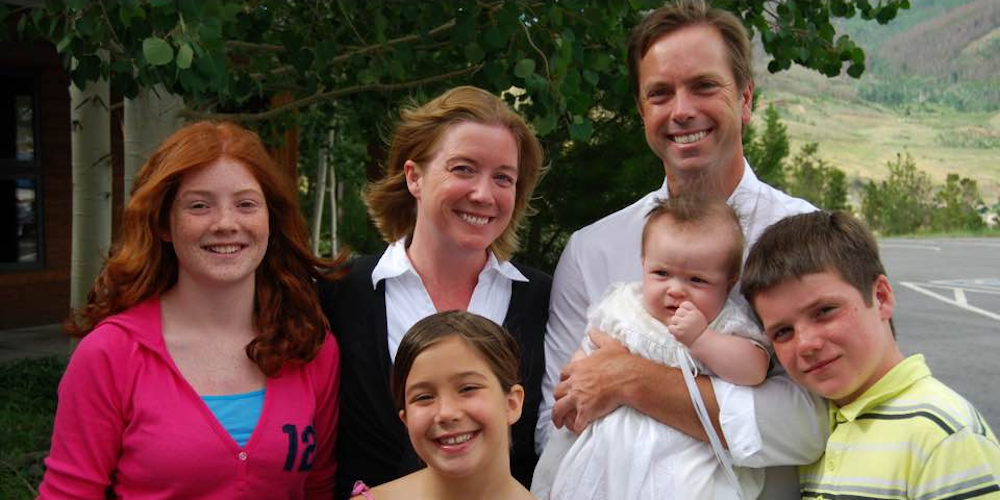Parents Choose a Diplomatic Career. Their Children Live It.
Empowering our kids with some say in our moves from Europe to Central America to Africa proved immensely beneficial.

My lunch companions surprised some of my fellow diplomats at the U.S. Embassy in London. But I had a very good reason to invite six high schoolers to my table. It was 2003, and I was on my third Foreign Service tour, raising three young kids. Listening to my colleagues’ older children was one of the best things I did as a parent. I had the same question for all of them that summer day: What did your parents do that made this nomadic global lifestyle better for you?
I knew that life in the Foreign Service would not be easy for my children. I had chosen a diplomatic career, but they had to bear the consequences — both good and bad. While all parents have to deal with changes in their children’s interests, those of us in the Foreign Service contend with the added layers of varying cultures, language barriers and a lack of continuity. That calls for creative thinking to support each child. What those young people told me in London has stuck with me to this day, even in my retirement.
One boy said with an evident sense of pride that his parents let him paint his room any color he wanted. “Even though they knew they would have to pay a bunch of money to paint the walls back when we left, I was the only kid in my group that had a room that wasn’t white,” he said. Foreign Service members are required to leave their government-provided residences abroad in the colors in which they found them. When weighed against making the transition easier for my children, I found the cost to be negligible — so we had purple, pink, brown, blue and even black bedroom walls during my three-decade career.
Another lunch attendee fondly recalled how her mom brought out the same holiday decorations every year, from Halloween pumpkins to birthday mugs to Christmas ornaments. The consistency provided her with a sense of safety, security and connection. It’s often the small, thoughtful gestures, rather than grand, expensive ones, that make the nomadic lifestyle easier for kids.
All four of my children were born overseas. The first three didn’t live in the United States until they went to college, and the fourth has yet to do so. Among them, they grew up in eight countries and attended a dozen schools — some using the American system, others the British, and local schools in the host-country language. Along the way, they made and left behind hundreds of friends. Each foreign country had its frustrations and charms for raising kids. One aspect I always fretted over was meeting each child’s unique needs. What they required changed from country to country, depending on their age, interests and personality — and what was available to meet those needs varied widely across countries.
Empowering our kids with some say in our moves proved immensely beneficial. From the age of 6 or so, we gave them a list of countries we were considering for our next move. They could research and rank their preferences, and we included their input in our discussions and decisions. Sometimes their reasons were surprising — my oldest daughter once insisted on Uganda because of an appealing school lunch menu she found online. We moved there, but alas, the lunch menu didn’t quite match her expectations. Still, it turned out to be a great posting for the family, even with packed and less desirable school lunches.
As a working mom, juggling diplomatic evening events and working after hours with visiting delegations often left me with limited time at home after school. When one of my daughters fell behind in math during my tour as deputy chief of mission in Mauritius, I was too slow to find a tutor to help her catch up. Today, I would not make that mistake. With the advent of online tutoring, there is no subject or place in the world where you can’t find extra help at a reasonable cost.
One of the most remarkable aspects of raising children in the Foreign Service is the opportunity to cultivate resilient global citizens. I found that our kids frequently develop a profound understanding of diversity, empathy and adaptability from a young age. They become adept at forging connections across cultures and can navigate complex social landscapes with ease. Growing up in different countries exposes them to a myriad of perspectives and challenges, and I have seen my kids — and many of my colleagues’ kids — become bridge-builders, diplomats and leaders who can empathize with and relate to people from all walks of life. They often speak multiple languages and can seamlessly transition between cultural contexts, making them invaluable assets in our interconnected world.
Although my kids sometimes struggled with living overseas and hated the frequent moves, they all now agree that they would not want any other life. In the end, it’s about finding a balance, nurturing independence and cherishing the small things that make a house a home, no matter where in the world you may be.
Virginia Blaser is a former U.S. Foreign Service officer, whose overseas posts included Belgium, Spain, Britain, El Salvador, Mauritius, Uganda, Tanzania and South Africa. She is the author of “The Manager’s Workbook.”
The views and opinions in this article do not necessarily represent those of the U.S. government or the Washington International Diplomatic Academy.

